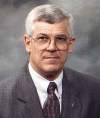Editorial comment
It’s not easy being GreenFor some time now, we’ve wondered whether BP has been the object of more than its fair share of protests and criticism from environmental groups, especially Greenpeace. Now, it appears that we have an unlikely collaborator in this line of reasoning. In fact, a New York Times article by Neela Banerjee and Suzanne Kapner seems to support what we’ve been thinking, and opines that BP is getting so much attention because its chairman, John Browne, positioned the company as a leader on environmental issues. They speculate that this has put BP in a position of having to prove that it really is thinking "beyond petroleum," as the company’s ads state. This perceived pliability on BP’s part also may be the reason some U.S. and British investors are pushing the company to abandon its intent to drill in the Arctic National Wildlife Refuge (ANWR) of Alaska, assuming it is ever opened to exploration. The investors had planned to introduce a shareholder resolution preventing same at the company’s annual meeting last month, and at press time, BP had rebuffed the move. It contended that foreign (non-British) investors hold their stock in the form of depository receipts, and thus, could not initiate shareholder resolutions. Interestingly, the Times writers see BP’s handling of the stockholder strategy as evidence that it is edging away from its "beyond petroleum" campaign. In fact, the writers speculate that the company has begun to see its ad campaign as an Achilles heel, rather than a business advantage. They quote a London-based investment analyst as saying, "BP wanted to win public support, so they adopted a very green look to the business. But they probably went too far." Banerjee and Kapner suggest that life would have been simpler if the company had remained the old BP; i.e., environmentalists and activist shareholders feel that they can push "eco-friendly" companies harder when they see a chance to influence opinions. Thank you, New York Times, we’ve been thinking the same thing, but must acknowledge being biased. Time to stop acquisition binge. Art Smith, chairman and CEO of John S. Herold, Inc., says that oil industry executives "will learn the hard way" that they won’t get the respect of Wall Street by trying to acquire their way to a higher valuation. He says that acquisitions made at high prices in a seller’s market will just add to the Street’s concern about the E&P sector’s ability to generate good returns over time. The biggest challenge facing E&P companies is how they spend their huge cash flows generated by higher oil and gas prices, according to Smith. Currently, he thinks E&P firms aren’t spending their funds aggressively (i.e., exploring, rather than acquiring) because they are concerned about making mistakes. Smith says he is encouraging companies not to overspend, not to do aggressive acquisitions, but instead, buy their own shares to take advantage of the large disconnect between the "forward market and the evaluations of the companies." Stay home Mr. Clinton. The International Nortel Networks Meridian Users Group (INNMUG) says it has "listened" to its members and "now feels that a speaker other than former President Bill Clinton would be more appropriate" at its annual conference. As a result, INNMUG has declined the engagement with Clinton and will feature another speaker "who enjoys international presence and is timely for their audience." In its fax announcing the speaker change, INNMUG did not elaborate on why its members objected, but we’ll guess that it was closely related to Clinton’s sleazy behavior, which culminated in the suspicious pardons he granted as he exited office. Looking forward, one might surmise that Clinton’s post-presidency earning power as a keynote speaker has been reduced substantially, at least with business groups. Oh well, he can likely make up the difference via the Hollywood set. INNMUG is an independent, not-for-profit association that seeks to inform members on trends and developments in the area of telecommunications. Who says engineers don’t have a sense of humor? Following are some anecdotes about engineers we’ve been collecting – from fellow engineers, incidentally:
The engineer reluctantly took the challenge, and spent a day studying the huge machine. At the end of the day, he marked a large X with chalk on a particular component of the machine and stated, "This is where your problem is." The part was replaced and the machine worked perfectly again. Then, he sent the company a bill for $50,000 for his services. The company demanded an itemized accounting of the charges. The engineer responded briefly, "One chalk mark, $1. Knowing where to put chalk mark, $49,999."
|



